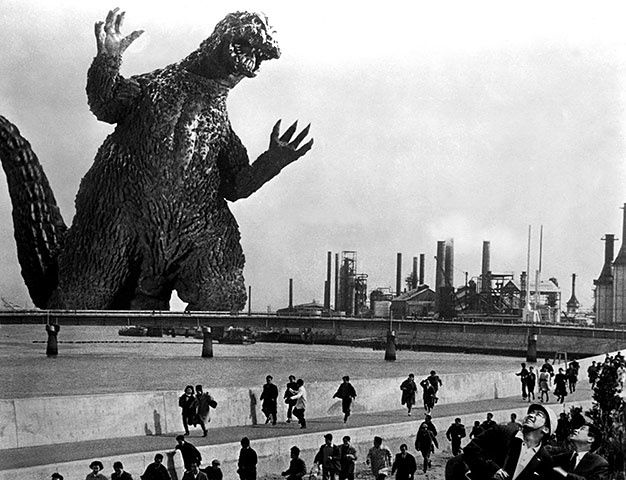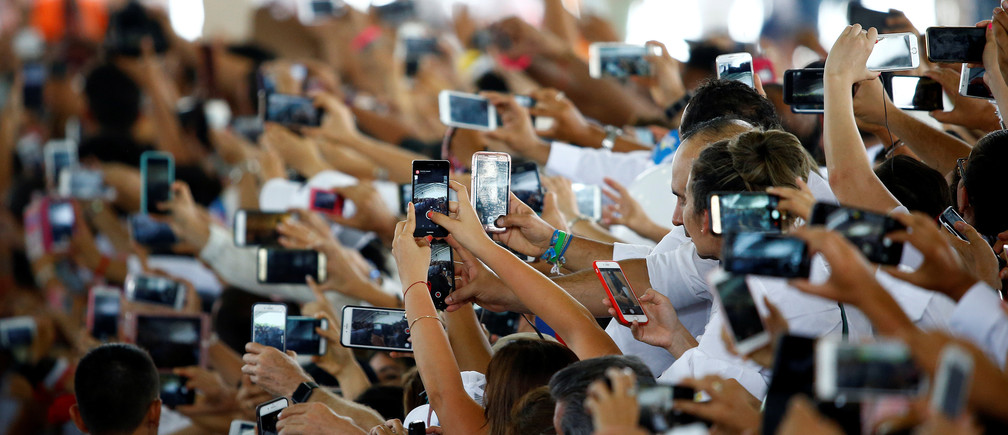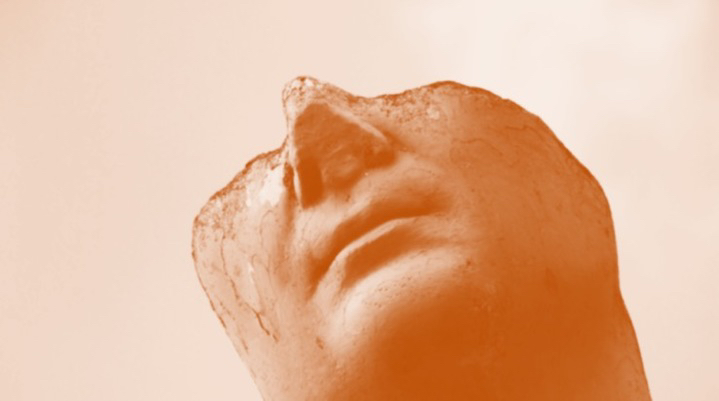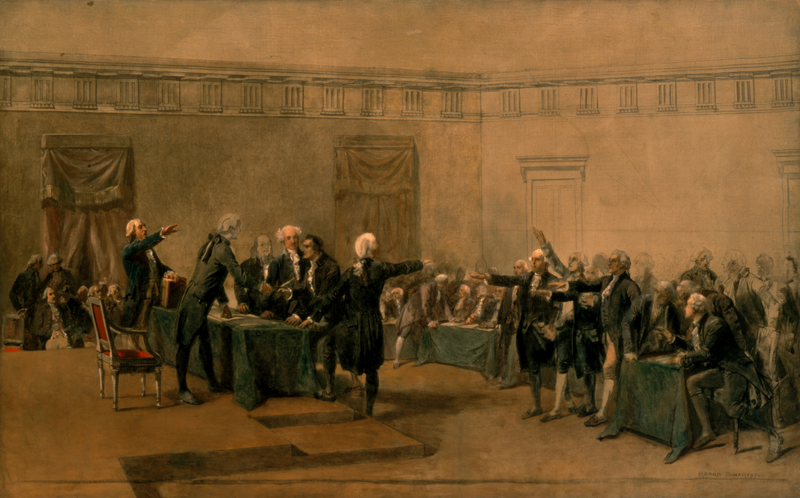Democracy and despotism in a digital age.
The Post-Liberal Moment

An Age of Flux.
In our divided country, one thing on which nearly everyone can agree is that the election of Donald Trump marked our entrance into a new age. In our time, we have seen our post-World War II establishment lose even the appearance of consensus about the fundamental political things.
Several compelling theories of where this new age began now compete for our attention. The most convincing, to my mind, is R.R. Reno’s. But absolutely no one has any sure idea of where it is headed. Our present politics consists of expansive and chthonic intuitions, desires, and discontents: deep, earthy forces far greater than the sundry political figures to whom they momentarily attach themselves. It is still to be determined whether those figures will shape a movement, or whether those forces will remold such persons as dare to harness and lead them.
Those who represent the fading political establishment have spent much of the last three years complaining about Trump’s abandonment of “constitutional norms,” along with his general boorishness, petulance, and spectacular manner of playing at politics. They speak as if Trump is a temporary disruption and, whether by the restoration of democracy or the reassertion of elite power, the old order will soon return.
They are not without reason for hope; many American institutions are functioning—in some cases, flourishing—and so, even amid the coronavirus, it does not always feel as if we are passing from one age to another. And yet, even before our present trials, those who would maintain the old order sensed a deep disturbance at work.
This seems the best way to account for an article like Laura K. Field’s recent “Meet the Reocons.” Field, whose more serious work in political philosophy looks fascinating, offers here an hysterical and naïve essay that is intended to be an exposé but qualifies instead as just one more amusing entry in the long history of “The Paranoid Style in American Politics.”
Field pretends to connect the dots between Michael Anton, author of “The Flight 93 Election,” Patrick J. Deneen, author of Why Liberalism Failed, Sohrab Ahmari, the New York Post’s op-ed editor, Israeli political philosopher Yoram Hazony, and William Barr, Attorney General of the United States.
Neither the persons she mentions, nor myriad other conservative and populist figures active in our time, can usefully be discussed in such a monolithic manner. But that does not stop Field from trying. She suggests four commonalities, tying them all together through social media and going so far as to demonstrate that several of them not only know one another but have even been in the same room!
She notes that these populist luminaries celebrate the collapse of the “old GOP consensus,” which had served its base poorly over the decades as an ascendant, centralizing “liberal” administrative state came to dominate American life. She rightly states that they decry the role that state has played in undermining the constitutional order of our politics and the moral and cultural order of American society as a whole. And, finally, she ominously implies that this cadre of villains has some secret plan for the new order they hope to bring about.
As I’ll show, this is certainly not the case. But it is true that we need a compelling new vision of political order. In a period of flux like ours, criticism is important but also easily done. What is most in question and most needed is a principled platform that can correct and overcome the failures of the liberal project and issue in a meaningful, post-liberal regime. Unfortunately, Field prefers to trade superficially in fear. Her article does not engage substantially with the published work of any of the persons she mentions. It consists largely of her making pretenses that, by showing a handful of connections between these people by way of publicly available information, she has exposed an undemocratic coup in the making. She acts as if, by drawing storm clouds and frowny faces around the margins of otherwise banal observations, she has demonstrated that what we have is not a group of individuals making rational arguments in the public square, but a secret cabal plotting to seize power.
The Paranoid Script
Each of the thinkers Field cavalierly groups together have markedly different views on American politics and society. She identifies them with such ease, not because she perceives some essential likeness buried within apparent difference, but because she is following a script.
In the 1990s, liberals and moderates in the establishment launched a rumor campaign against evangelical Christians, proposing that Ralph Reed and the Christian Coalition were about to wrest control of the government from President George H.W. Bush. I recall witnessing, in my teens, a room of Texas business conservatives speaking in all seriousness, and filled with anxiety, that Bush may well be assassinated to make clear the path for Dan Quayle’s ascendency to power.
In the early 2000s, Damon Linker tried to reheat the leftovers by exposing the “Theocons”: Father Richard John Neuhaus, George Weigel, Michael Novak, and others who dared to dream that democratic capitalism might flourish if the public square were supported by the cultural capital and moral wisdom of its religious citizens.
It was paranoia then, and it is paranoia now. As before, it is dictated by a familiar script (and perhaps a scheme to sell books). But Field’s paranoia comes with a difference: we really do not know what the outcome of the present moment is going to be. Further, nearly everyone, outside those in the establishment who have a vested interest in maintaining the old liberal order, is convinced that we have entered a post-liberal time and that we ought to aim at something new.
Some of Field’s arguments refute themselves. The only reason she included Barr in her list, for instance, is because of a speech he recently delivered at the University of Notre Dame that argued religious liberty is under attack and this is a bad thing. The cultural capital built up by generations of religious Americans has been swiftly eroded by a concerted effort to secularize the public square. The breakdown of the family and the opioid crisis are symptoms of a deeper cultural malaise abetted by government hostility to religion.
She apologizes for her “glibness” as she mocks such arguments. You “would think liberals were requiring people to marry against their sexual orientation,” she begins, giving a plump little list of what she takes to be demonstrations of Barr’s paranoia. But, in the same section, she mentions the advent of “Drag Queen Story Hour” at public libraries and museums; the Supreme Court’s decision in the Obergefell v. Hodges (2015) case and its use to coerce Christian baker Jack Phillips of Masterpiece Cakeshop to act against his beliefs; and the Little Sisters of the Poor, hauled into court because they refused to comply with the Obamacare contraception mandate.
In each instance, Christian moral claims were either rejected outright as in conflict with the Constitutional order, or individual Christians were subjected to harassment and lawsuits for practicing their convictions. Field did not have to go in search of imaginary monsters: what Barr means by an assault on religious liberty is plain for all to see.
Barr’s rhetoric is familiar—indeed, of an earlier age—and hardly merits the coining of a neologism such as “Reocon.” Some of it owes a debt to Jimmy Carter. Field is correct, however, to propose that Deneen and Ahmari represent a new post-liberal turn in the thought of our age. Her readers would have been better served had she tried to understand their arguments rather than simply to take screen shots of their tweets. Let me offer a short description of what each of them has so far proposed.
Deneen: What He Saw in America
Deneen’s work draws on Alexis de Tocqueville and the writings of the anti-Federalists, whom he studied with the late Rutgers political philosopher (and a man of the Left) Wilson Carey McWilliams. Tocqueville had looked upon the rise of democracy in America and found it an expression of the central force driving everything in the modern age: the movement toward equality.
The aristocratic society Tocqueville knew and admired for its prizing of liberty was being swept away by equality’s tide. The young democracies of the United States, however, looked to Tocqueville like promising—but fragile—experiments. Americans had rejected the cultural norms of aristocracy in the name of equality, but they had also built up free associations and civil society so as to allow liberty and equality to coexist.
Tocqueville knew that there were greater goods than either liberty or equality, but he saw that the new liberal orders emerging around the world cared only for these two goods and nothing else. America’s balance of liberty and equality allowed for the emergence of a flourishing nation, where liberty could become ordered liberty and human equality could be pursued as equality under the law, without giving way to something more absolute that would destroy every difference and distinction necessary for an intricate society and its institutions to function.
Americans thus avoided turning all political power and authority over to a centralized state, wherein citizens become “equal” only by becoming equally powerless, and “free” only within an ever smaller and more minute sphere of activities. Society retained a form, rather than dissolving into a great sea of individuals trembling only before the power of Leviathan.
By the end of his life, however, Tocqueville realized that the great impulse of the modern world toward equality was deceptive. Equality was but a pretense for the true historical force driving the age: centralization. The modern state arrogated ever more power and authority to itself.
In France, there was little difference between the old absolute monarchy and the revolutionary absolute Republic. In both cases, the state absorbed more and more of political and social life within itself. In America, the gradations of free association, civil society, local and state government, all grew weaker as the federal government made an entrance into more branches of public life and drove out civil society with administrative power.
Deneen draws the obvious lesson from Tocqueville. In a country lacking the older aristocratic and hierarchical traditions of Europe, the only way to secure meaningful liberty and equality for citizens without their total absorption by a single power is to sustain and promote the various oddments of a decentralized polity—such things as free associations, churches, and voluntary organizations, in addition to local governments and administrations guarding jealously their role in public life.
The chief concern of Deneen’s work, then, is a defense of self-government, where individual citizens are supported by family, church, principles of federalism and subsidiarity, and, finally, a deep and rooted culture. These various, unsystematic (even anti-systematic) institutions and habits work to form citizens capable of participating in political life in a fuller sense than just pulling the lever, every four years, for one of two candidates at the polling place.
Ahmari: Reintegrating the Political Order
In Tocqueville and Deneen alike, we find a recognition that liberal regimes by their own nature undermine the societies they govern and do so specifically by denying that there are any goods—and ends at which human life aims—beyond liberty and equality. Such regimes emerged in the first place because a decent liberty and equality are themselves a means to other goods far greater than themselves: education in virtue, in the liberal arts, responsible self-government, love of local community and country, and devotion to God.
But, over the course of two centuries, liberal regimes came to redefine those greater goods as “private,” and so to push them out of the public or political realm altogether. As Orestes Brownson once argued, in early America, freedom of religion was the state’s recognition that it had no authority to pronounce upon what transcended it. In contemporary America, freedom of religion seems an eccentric carve-out, where the strange beliefs of private individuals are grudgingly tolerated. They are held to be otherwise invisible and irrelevant to our common life.
This is what James Kalb diagnosed years ago in 2008 as The Tyranny of Liberalism: the limited goods of equality and liberty come to be treated as absolute goods, before which every other claimant must give way. The result is a population of increasingly isolated individuals left without the social guidance they require to become well-formed, virtuous persons. They become, also, increasingly dependent individuals who trust only the state with political power, while their claims to autonomy regard only the ever-shrinking terrain of “private” life.
In the last few decades, sex has become that solitary preserve of autonomy. Sex is irreducibly significant—no matter how much we debase it, we can never strip it of meaning to the point of becoming merely to one pleasure among others. And yet, sex is evermore radically reimagined as an entirely private, individual means of fulfillment, to be undirected by any moral principle except the liberal sine qua non of “consent.”
If you wonder why matters of sexuality are so frequently at the center of our political disputes, it is because they are the only things left over which most persons feel any stake or meaningful control. The modern, isolated individual increasingly asks the state to exercise its power for the sake not only of preserving this private sphere of autonomy, but to cause it to become also the public way by which we define ourselves. These are not separate but mutually reinforcing impulses.
Sohrab Ahmari’s writings seek to recover a pre-liberal, indeed ancient, conception of politics. His spiritual memoir, From Fire, by Water (2019) is, in part, a tale of how he discovered a fuller vision of both the personal and the political than the petty, centralizing epicurean spirit of liberalism would like us to think possible. The political is not merely a carefully circumscribed sphere, where equality and liberty are secured by strictly separating the public and the private, but the place where we determine what are the substantive goods at which human beings aim for themselves as individuals and in their common life. The source of this politics is Aristotle by way of Thomas Aquinas and the social magisterium of the Catholic Church.
Field mentions Ahmari’s feud with the Christian conservative liberal David French. French proposes that the state serves simply to establish a sphere of liberty and equality where private citizens can do what they want. The Pentecostal can handle snakes, while the drag queen can read to children at the public library, each of them exercising the same basic, morally neutral, political liberty.
Ahmari holds otherwise. In a polity with thick cultural and moral roots that support the person in development toward self-government, and orient him to the good and to his genuine flourishing, the state rightly plays a limited role. But a state deliberately agnostic about the nature of that good will eventually reshape the broader culture to become agnostic about these things too.
French thinks culture can sustain us in a free realm whose margins are simply guarded by politics. To the contrary, a flourishing culture will shape politics and give it form, ordering it toward the good, holds Ahmari. But, moreover, politics is an intrinsic, central part of culture, and so the state must play an authoritative role in these acts of forming a citizenry.
Ahmari wants a politics strong enough to make real claims about good and evil, to advocate virtue and condemn perversity. He wants our politics to be what all politics inevitably is: the place where citizens adjudicate the common good and pursue it together. Because our common good inevitably transcends political life, we must also be open to that authority which also transcends the state, namely, the Church. The weakness of French’s liberal position is that it calls agnosticism, or “limited government,” what is really a hell-bent antinomianism and atheism.
Brownson’s analysis of modern democracy was to some extent naïve. Liberal regimes are not merely silent on questions that transcend them; they seek to eliminate those questions, to transform human nature, and in that sense genuinely to pervert the citizenry. It is, therefore, hardly incidental that the feature of our age that Field cites Ahmari as decrying is the appearance of drag queens in places once intended to form an enlightened, educated citizenry made capable of self-government by learning from the authority of the past.
Toward a Post-Liberal Political Life
We are, I think, very far from moving in the direction of local self-government, a richer and more authoritative moral culture, or a politics of virtue and goodness. Those who, with Field, fear such things have, alas, little reason to do so. Ours is a post-liberal moment and a fluid one, however, and it would be a pleasant surprise if America’s widespread mistrust and weariness of its political elites should somehow occasion a restoration of America’s democratic traditions and a classical politics that can affirm more about human life than the utility of liberty and equality.
Deneen and Ahmari have so far largely provided us a critique of a liberalism brought to decline by its own success. Much of contemporary conservative thought could be so described. What Field warns us of as an ominous, secretive vagueness about the future these writers desire is merely a consequence of their having focused more on revealing the flaws of the present order than pointing the way forward.
Should a positive political vision emerge, it will almost certainly have much in common with older republican and liberal traditions that shaped our country. It will emphasize citizenship as part of a good human life, and therefore the liberty of self-responsibility and self-government as things for which one must be educated. It will dispel liberalism’s contradictory and inane doctrines about public and private life and reintegrate the common good. It will renew the pluralized institutions that American federalism and Catholic subsidiarity see as good in their own right. It will therefore also recognize the moral authority to be found in the local and the particular as well as in that of the universal teachings of the Church.
Our moment is too clouded and in flux to say anything of the kind will come into being. Much of history is a careening from bad to worse, a “long defeat” as Tolkien called it. But the excitement of our present hour is that we have, in regard to the future, both much to fear and, as Field suggests despite herself, intellectual seeds of hope.
The American Mind presents a range of perspectives. Views are writers’ own and do not necessarily represent those of The Claremont Institute.
The American Mind is a publication of the Claremont Institute, a non-profit 501(c)(3) organization, dedicated to restoring the principles of the American Founding to their rightful, preeminent authority in our national life. Interested in supporting our work? Gifts to the Claremont Institute are tax-deductible.
Part I: Unfettered reason cannot conserve anything.
One dose will erase your whole political mind.






